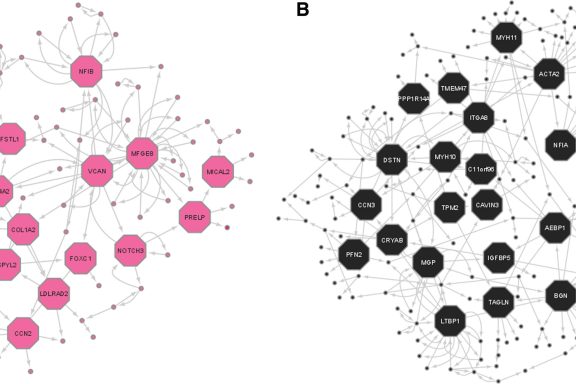
Translational omics is a powerful approach that integrates various omics technologies—such as genomics, transcriptomics, proteomics, and epigenomics—to translate basic scientific discoveries into clinical applications.
By analyzing large-scale biological data, translational omics aims to understand complex biological processes and disease mechanisms, ultimately leading to the development of personalized diagnostic tools, targeted therapies, and improved patient care.
At our group, we apply these innovative technologies to advance the understanding of
atherosclerosis and cardiovascular diseases.
We combine bulk and single-cell transcriptomics, epigenetics, and proteomics with clinical datasets and in vitro experiments to unravel the molecular mechanisms behind plaque development. Utilizing the Athero-Express biobank—the largest collection of well-characterized atherosclerotic plaques from over 4,000 patients. By combining omics data with histological and clinical insights, we aim to decode the mechanisms leading to acute events such as stroke and myocardial infarction.
Our research employs advanced bioinformatics tools and primary in vitro model systems to
validate our findings.